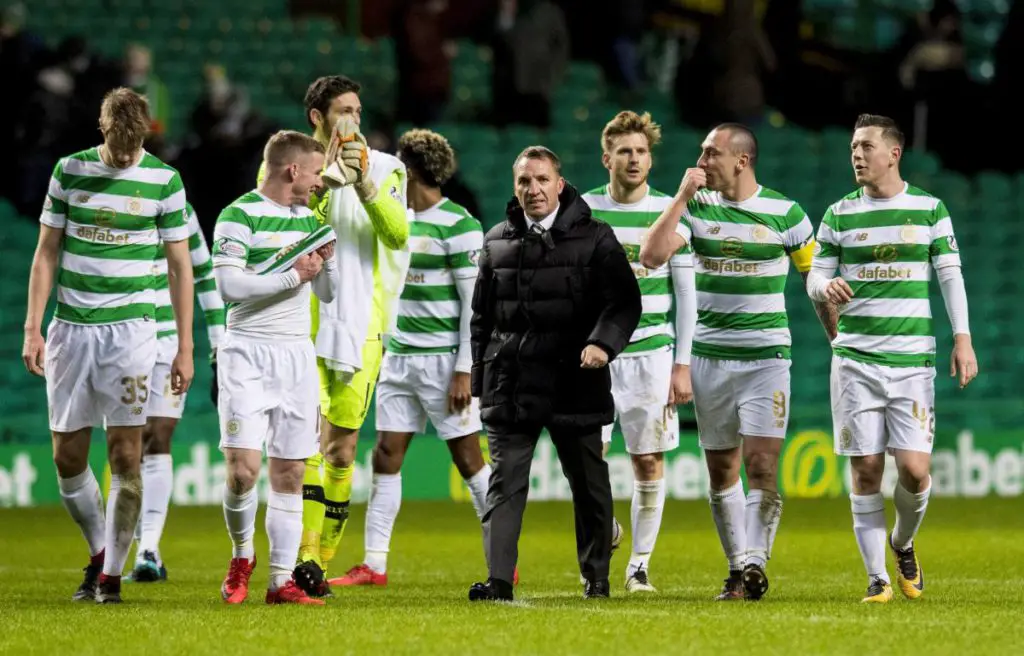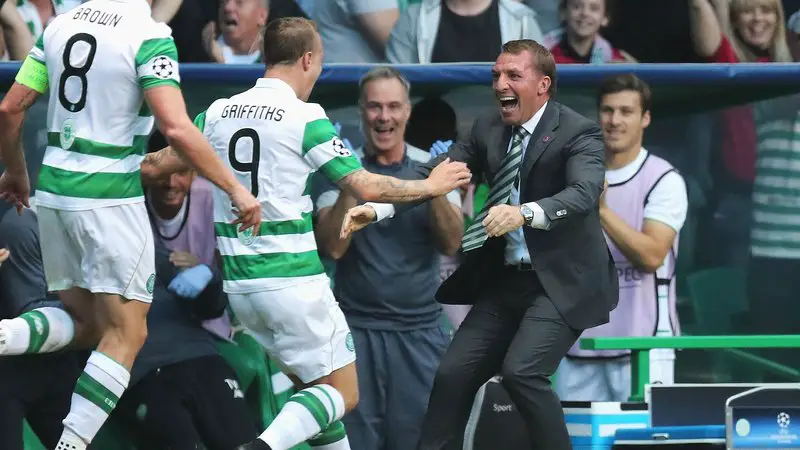This weekend will certainly go down in history as one of Celtic’s greatest ever. It culminated in a testimonial match for long-serving captain Scott Brown, against the Republic of Ireland, played under a jubilant atmosphere. Heroes like Henrik Larsson and Martin O’Neill returned to Celtic Park for the occasion; departing ones like Patrick Roberts got the send-off they truly deserved.
Celtic’s 2-0 victory over Motherwell in the Scottish Cup final was relatively trouble-free and meant they won a historic and deserved double treble, the first of its kind.
Consider the result in the German Cup final on the same day: the unfancied Eintracht Frankfurt defeated the mighty Bayern Munich 3-1, despite having a significantly lower budget. Consider, too, the point margins in Europe’s top leagues this season, where Barcelona, the aforementioned Bayern, PSG, and England’s Manchester City all won their respective leagues in remarkably easy fashion, ultimately winning by much larger margins than Celtic did.
When Celtic won their seventh league title in a row, it was because of the dearth of quality against them; when Barcelona did it, it was as a result of their scintillating and beautiful attacking football. It’s different standards, it seems, for Scottish football, and it’s one that has to be rectified due to its unfairness. Indeed, if double trebles were so easy to attain, more teams in world football would have found the feat, but as it stands Celtic are the only one to do so.
As the team arrived back at Celtic Park on an unusual open-top bus, lapping up the adulation from their support, it felt wholly merited. The occasion had to be marked, the success had to be remembered. Brendan Rodgers rightly enjoyed the experience, but he was swift to remind the fans and his players that difficult challenges lie ahead.
Each game he is regaled with a song announcing his intention to remain at the club for ten league wins in a row but perhaps the next three will be the hardest to achieve. The threat from old foes Rangers may just be noise, given the prestige of their new manager Steven Gerrard, but it must be treated with respect and caution.
Perhaps Rodgers’ most key signing has already been made, when he tied the exquisite talents of Tom Rogic to a long-term contract. There was much speculation regarding the Australian leaving at the end of this summer but he seems happy in Glasgow; there is no one close in Scottish football to his skill set, full of world-class touches and stunning playmaking vision.
The media has been talking in ecstatic fashion about possible transfers that Gerrard could attract, including his old teammates Martin Skrtel and Jermaine Defoe, but both would demand huge weekly wages, something which likely will be out of the club’s financial reach.
What is definitely true, though, is that Scottish football as a whole is improving, and fast. Celtic’s achievements have been rightly lauded outside of Britain, Gerrard’s name is a huge pull, and teams like Aberdeen, Hearts, and Hibs are all increasing in their standards. One only needs to look at the list of current Scottish Premiership managers to realise the new quality on show: aside from Rodgers and the inexperienced but famous Gerrard.
Craig Levein coached the Scottish national team, Neil Lennon won titles and overcame Barcelona during his time at Celtic, and Steve Clarke at Kilmarnock enjoyed an excellent season in the English Premier League with West Brom, guiding them to their highest-ever league position.
Pundits like Chris Sutton and Michael Stewart have acknowledged the excitement the upcoming season holds, and the fans rightly should too. When Celtic completed that unbelievable ‘Invincibles’ season in 2016/2017, everyone knew it would be hugely unlikely to ever happen again; the same will be said of the double treble campaign.
The odds will definitely be against Rodgers’ men, but what will be vital is that the Northern Irishman makes sure his team maintain their standards next season, in the face of decidedly stiffer opposition. Scottish football is getting better, and Celtic will have to get better accordingly to remain at its pinnacle.



